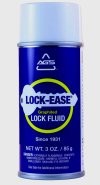Mike in Devon
Registered
Hi folks
I've seen quite a few posts here that mention lubricating points. Undoubtedly a good idea but but please can an expert tell this ex - spurt suggest which bits of a point would benefit from what lubricating material? I keep thinking of different stuff but keep thinking of their disadvantages too.
TIA
From Mike in a sunny Devon (but those evenings are pulling in)
I've seen quite a few posts here that mention lubricating points. Undoubtedly a good idea but but please can an expert tell this ex - spurt suggest which bits of a point would benefit from what lubricating material? I keep thinking of different stuff but keep thinking of their disadvantages too.
TIA
From Mike in a sunny Devon (but those evenings are pulling in)

